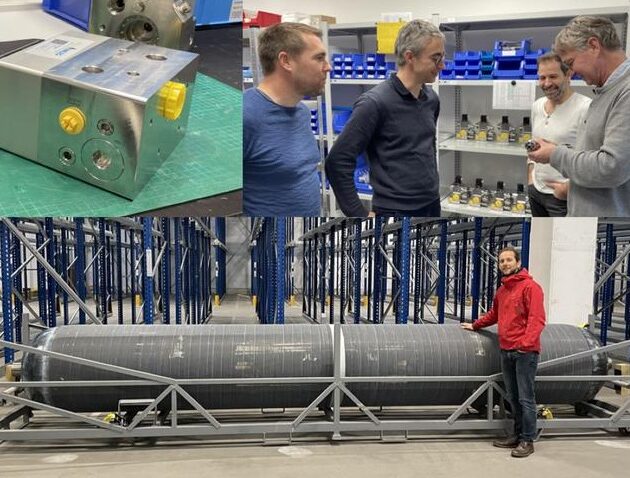
photo: Bureau Veritas
This achievement marks a significant step forward in the safe deployment of compact hydrogen-based energy solutions for the maritime sector. The AiP confirms that the system’s design aligns with BV rule note NR678 for hydrogen fuelled ships, offering a viable path for incorporating alternative fuel technologies into modern vessel architectures.
The approved system is a hydrogen storage and supply solution developed to power fuel cells using compressed gaseous hydrogen stored in Type 4 tanks. Its design allows for integration into confined spaces located below deck, enabling new design opportunities for low-emission vessels.
These results were made possible through a dedicated R&D program focused on innovative risk reduction and mitigation measures, which led to the development of dedicated patented components with advanced safety functionalities, tailored for integration in demanding maritime environments.
A Type 4 hydrogen tank is a high-pressure storage vessel composed of a polymer liner fully wrapped in carbon fibre composite, designed to combine maximum strength with minimum weight — a key technology for hydrogen mobility.
Benoit Perrot, Leader Marine Hydrogen Projects, Seco Marine, said: “We would like to extend our congratulations to all teams and partners involved for their technical excellence and collaboration. Special recognition goes to *France 2030* and the *Pays de la Loire Region*, whose support has been instrumental in enabling this progress.“
Matthieu de Tugny, Executive Vice President, Bureau Veritas Marine & Offshore: “By supporting the development of innovative, compact, and robust hydrogen systems, we are helping pave the way for a more sustainable future for shipping. We are delighted to work alongside industry pioneers like SECO MARINE to accelerate the adoption of alternative fuels in line with global decarbonization goals.“





 Lu public network security: 37140202000173
Lu public network security: 37140202000173



